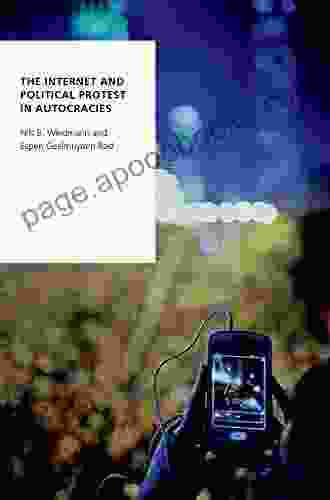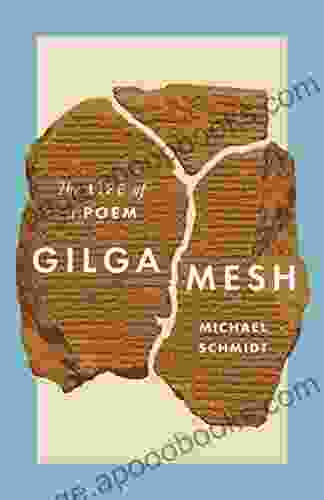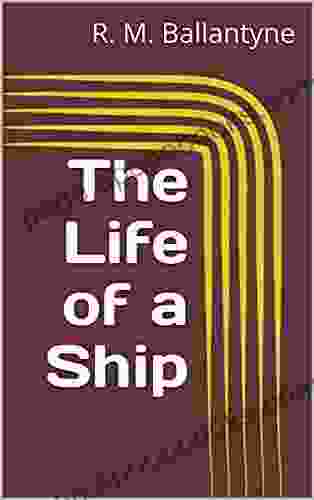The Internet and Political Protest in Autocracies

The Internet has had a profound impact on political protest around the world. In autocracies, where traditional forms of protest are often met with repression, the Internet has provided activists with a new tool to organize, mobilize, and communicate with each other.
5 out of 5
| Language | : | English |
| File size | : | 5106 KB |
| Text-to-Speech | : | Enabled |
| Screen Reader | : | Supported |
| Enhanced typesetting | : | Enabled |
| Word Wise | : | Enabled |
| Lending | : | Enabled |
| Print length | : | 215 pages |
This book examines the role of the Internet in facilitating protest in autocracies. It explores the different ways that activists have used the Internet to organize protests, disseminate information, and build support for their cause. It also examines the ways in which autocratic regimes have responded to the Internet, including through censorship, surveillance, and arrests.
The book concludes by discussing the implications of the Internet for democratization in autocracies. It argues that the Internet has the potential to empower activists and promote democratic change, but that it is also important to be aware of the challenges and risks that the Internet poses.
The Role of the Internet in Facilitating Protest
The Internet has played a major role in facilitating protest in autocracies. Activists have used the Internet to:
* Organize protests: The Internet has made it easier for activists to connect with each other and plan protests. Social media platforms such as Twitter and Facebook have been particularly useful for this purpose. * Disseminate information: The Internet has also made it easier for activists to disseminate information about their cause. They can use websites, blogs, and social media to share news and updates with their supporters. * Build support: The Internet has also helped activists to build support for their cause. They can use the Internet to connect with potential supporters and raise awareness of their issue.
The Response of Autocratic Regimes
Autocratic regimes have responded to the Internet in a variety of ways. Some regimes have embraced the Internet and used it to communicate with their citizens and promote their own agendas. Other regimes have been more cautious and have imposed restrictions on Internet access and use. Still other regimes have cracked down on Internet activists and used the Internet to monitor and suppress dissent.
The response of autocratic regimes to the Internet has been shaped by a number of factors, including the regime's ideology, its level of legitimacy, and its capacity for repression. Regimes that are more ideological and less legitimate are more likely to view the Internet as a threat and to impose restrictions on its use. Regimes that have a high capacity for repression are more likely to be able to crack down on Internet activists and suppress dissent.
The Implications for Democratization
The Internet has the potential to both promote and hinder democratization in autocracies. On the one hand, the Internet can empower activists and provide them with new tools to organize and mobilize. On the other hand, autocratic regimes can use the Internet to monitor and suppress dissent.
The outcome of the struggle between activists and autocratic regimes over the Internet will likely have a significant impact on the future of democratization in autocracies. If activists are able to successfully use the Internet to promote democratic change, then it could lead to a more open and democratic society. However, if autocratic regimes are able to successfully suppress dissent on the Internet, then it could lead to a more repressive and authoritarian society.
The Internet has had a profound impact on political protest in autocracies. It has provided activists with new tools to organize, mobilize, and communicate with each other. It has also made it easier for activists to disseminate information about their cause and build support for their movement. However, autocratic regimes have also responded to the Internet, and they have used a variety of tactics to restrict its use and suppress dissent. The outcome of the struggle between activists and autocratic regimes over the Internet will likely have a significant impact on the future of democratization in autocracies.
5 out of 5
| Language | : | English |
| File size | : | 5106 KB |
| Text-to-Speech | : | Enabled |
| Screen Reader | : | Supported |
| Enhanced typesetting | : | Enabled |
| Word Wise | : | Enabled |
| Lending | : | Enabled |
| Print length | : | 215 pages |
Do you want to contribute by writing guest posts on this blog?
Please contact us and send us a resume of previous articles that you have written.
 Book
Book Novel
Novel Page
Page Chapter
Chapter Text
Text Story
Story Genre
Genre Reader
Reader Library
Library Paperback
Paperback E-book
E-book Magazine
Magazine Newspaper
Newspaper Paragraph
Paragraph Sentence
Sentence Bookmark
Bookmark Shelf
Shelf Glossary
Glossary Bibliography
Bibliography Foreword
Foreword Preface
Preface Synopsis
Synopsis Annotation
Annotation Footnote
Footnote Manuscript
Manuscript Scroll
Scroll Codex
Codex Tome
Tome Bestseller
Bestseller Classics
Classics Library card
Library card Narrative
Narrative Biography
Biography Autobiography
Autobiography Memoir
Memoir Reference
Reference Encyclopedia
Encyclopedia Tyrone Dubose
Tyrone Dubose Mike Mathis
Mike Mathis Milton Mueller
Milton Mueller Pere Gimferrer
Pere Gimferrer Raymond Hunter Pyle
Raymond Hunter Pyle Stefania Del Monte
Stefania Del Monte Michele Brenton
Michele Brenton Moshe Lewin
Moshe Lewin Melissa A Borza
Melissa A Borza Michael Chapala
Michael Chapala Matthew Vale
Matthew Vale Peter C Foster
Peter C Foster Patricio Navia
Patricio Navia Melanie Zuben
Melanie Zuben Melanie Ever Moore
Melanie Ever Moore Tricia Lynn Maloney
Tricia Lynn Maloney Mona Lisa Harding
Mona Lisa Harding Raquel Rolnik
Raquel Rolnik Michael San Diego
Michael San Diego Sherry Sanden
Sherry Sanden
Light bulbAdvertise smarter! Our strategic ad space ensures maximum exposure. Reserve your spot today!
 Christopher WoodsFollow ·9.8k
Christopher WoodsFollow ·9.8k Pat MitchellFollow ·19.5k
Pat MitchellFollow ·19.5k Chandler WardFollow ·3.9k
Chandler WardFollow ·3.9k Tyler NelsonFollow ·18.9k
Tyler NelsonFollow ·18.9k Adrien BlairFollow ·4.5k
Adrien BlairFollow ·4.5k Eugene PowellFollow ·7.3k
Eugene PowellFollow ·7.3k Dean CoxFollow ·10.2k
Dean CoxFollow ·10.2k Jeffrey CoxFollow ·18.6k
Jeffrey CoxFollow ·18.6k

 Ben Hayes
Ben HayesJourney into the Verdant Realm of "Plants vs. Zombies:...
Immerse Yourself in an Epic Battle for...

 Edward Reed
Edward ReedUnveiling the Allure of Modish Crochet Hats Annie...
In the realm of fashion and...

 Jaylen Mitchell
Jaylen MitchellHalf Moon Bay: An Unforgettable Adventure Awaits in Aj...
Prepare yourself...

 Dan Brown
Dan BrownUnleash the Plant-Powered Apocalypse: Dive into Paul...
Prepare yourself for an epic showdown where...

 Efrain Powell
Efrain PowellStolen Summer: Nora Sommer's Enthralling Caribbean...
Escape to a World of...

 Steven Hayes
Steven HayesPlants vs. Zombies: Lawnmageddon - The Ultimate Battle...
Prepare for the ultimate battle between plants...
5 out of 5
| Language | : | English |
| File size | : | 5106 KB |
| Text-to-Speech | : | Enabled |
| Screen Reader | : | Supported |
| Enhanced typesetting | : | Enabled |
| Word Wise | : | Enabled |
| Lending | : | Enabled |
| Print length | : | 215 pages |












